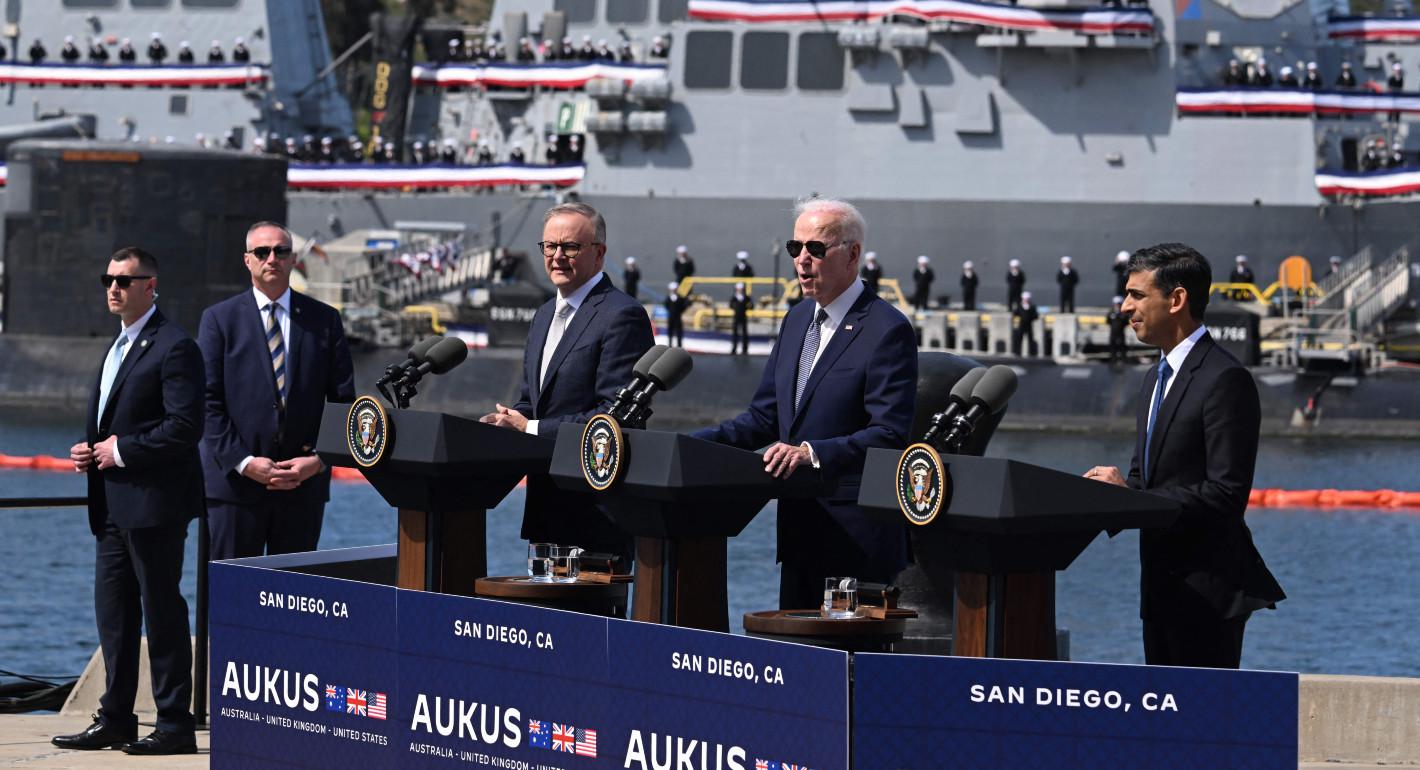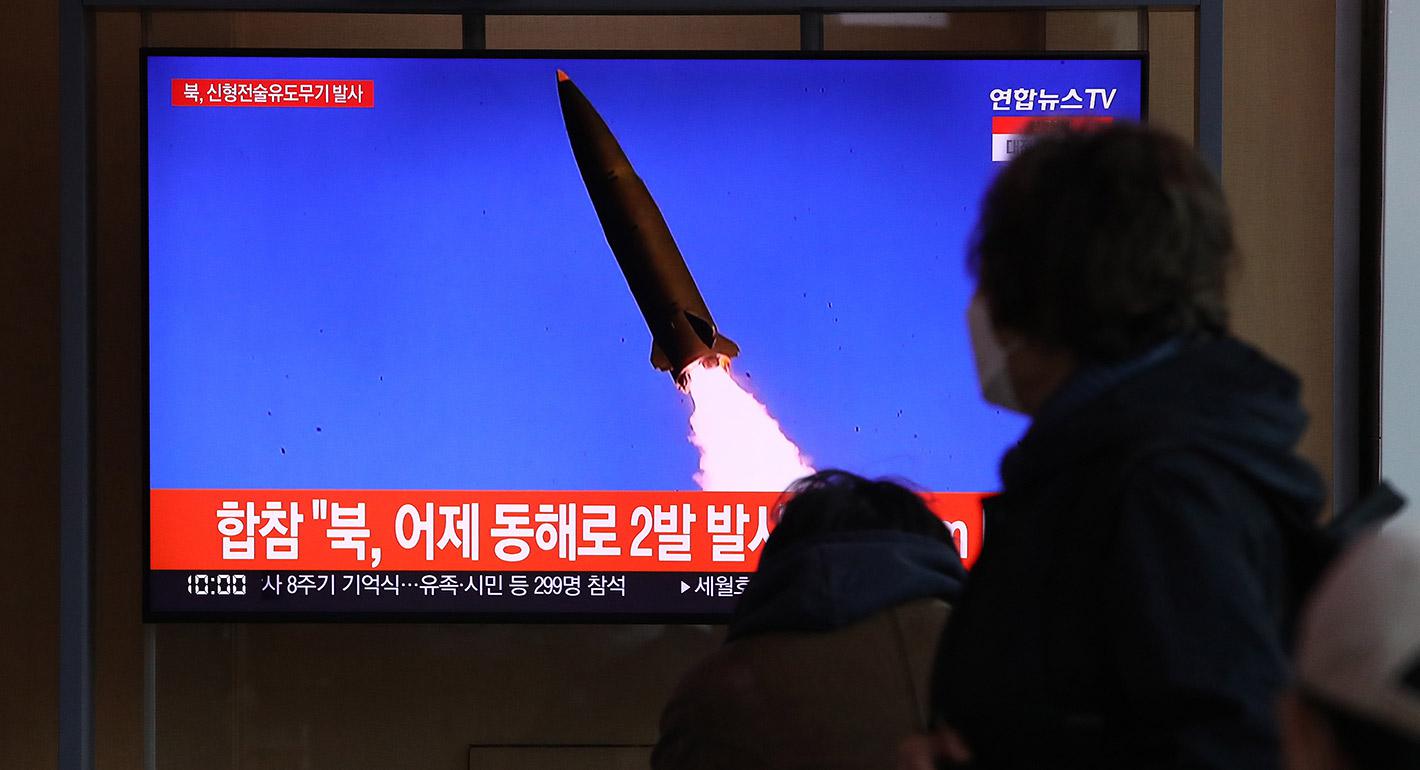The Carnegie Nuclear Policy Program works to strengthen international security by diagnosing acute nuclear risks, informing debates on solutions, and engaging international actors to effect change. The program’s work spans deterrence, disarmament, nonproliferation, nuclear security, and nuclear energy.
More about the program >
Climate change stands to impact each leg of the U.S. nuclear triad in different and increasingly serious ways. Given the high-stakes nature of the nuclear enterprise, the Department of Defense and other key stakeholders must better prepare for, mitigate, and adapt to these climate challenges.

Canberra should push to alleviate itself of the burden of managing spent fuel while enhancing commitments to nonproliferation.

It is precisely because of, and not in spite of, the fact that Moscow and Pyongyang have repeatedly held their nuclear arsenals over Western heads that leaders should take these threats seriously.

It’s a sign that Washington and Seoul are adapting to internal and external stressors.

Almost all of the non-nuclear-weapon states that are friends of the United States participate fully in the international nuclear nonproliferation regime, which entails rigorous multilateral legal obligations.

Information from SBIRS satellites would meaningfully increase security for the two Northeast Asian allies against Pyongyang’s growing missile threat.
Experts and officials from around the world met virtually to debate—and explore solutions for—the most pressing challenges in nuclear nonproliferation, arms control, disarmament, deterrence, energy, and security.
Acton holds the Jessica T. Mathews Chair and is co-director of the Nuclear Policy Program at the Carnegie Endowment for International Peace.
Fiona Cunningham is a nonresident scholar in the Nuclear Policy Program at the Carnegie Endowment for International Peace and was a Stanton Nuclear Security Fellow in 2020-21.
Toby Dalton is a senior fellow and co-director of the Nuclear Policy Program at the Carnegie Endowment. An expert on nonproliferation and nuclear energy, his work addresses regional security challenges and the evolution of the global nuclear order.
Rose Gottemoeller is a nonresident senior fellow in Carnegie’s Nuclear Policy Program. She also serves as the Frank E. and Arthur W. Payne Distinguished Lecturer at Stanford University’s Freeman Spogli Institute for International Studies and is a research fellow at the Hoover Institution.
Hibbs is a Germany-based nonresident senior fellow in Carnegie’s Nuclear Policy Program. His areas of expertise are nuclear verification and safeguards, multilateral nuclear trade policy, international nuclear cooperation, and nonproliferation arrangements.
Kassenova is a nonresident fellow in the Nuclear Policy Program at the Carnegie Endowment.
Ulrich Kühn is a nonresident scholar at the Carnegie Endowment for International Peace, and the head of the arms control and emerging technologies program at the Institute for Peace Research and Security Policy at the University of Hamburg.
Jamie Kwong is a fellow in the Nuclear Policy Program at the Carnegie Endowment for International Peace.
Levite was the principal deputy director general for policy at the Israeli Atomic Energy Commission from 2002 to 2007.
Thomas MacDonald is a fellow in the Nuclear Policy Program at the Carnegie Endowment for International Peace.
Ankit Panda is the Stanton Senior Fellow in the Nuclear Policy Program at the Carnegie Endowment for International Peace.
Perkovich works primarily on nuclear strategy and nonproliferation issues; cyberconflict; and new approaches to international public-private management of strategic technologies.
Lindsay Rand is a Stanton pre-doctoral fellow in the Nuclear Policy Program at the Carnegie Endowment for International Peace.
Todd S. Sechser is a nonresident scholar in the Nuclear Policy Program and the Pamela Feinour Edmonds and Franklin S. Edmonds Jr. Discovery professor of politics and public policy at the University of Virginia.
Dr. Lauren Sukin is a nonresident scholar in the Nuclear Policy Program and an assistant professor of international relations at the London School of Economics and Political Science (LSE).
Ülgen is a senior fellow at Carnegie Europe in Brussels, where his research focuses on Turkish foreign policy, nuclear policy, cyberpolicy, and transatlantic relations.
Tristan Volpe is a nonresident fellow at the Carnegie Endowment for International Peace and assistant professor of defense analysis at the Naval Postgraduate School.
Fumihiko Yoshida is a nonresident scholar at the Carnegie Endowment for International Peace.
Tong Zhao is a senior fellow in Carnegie’s Nuclear Policy Program.